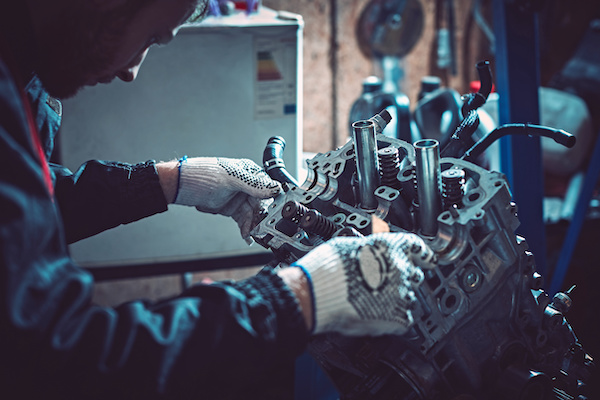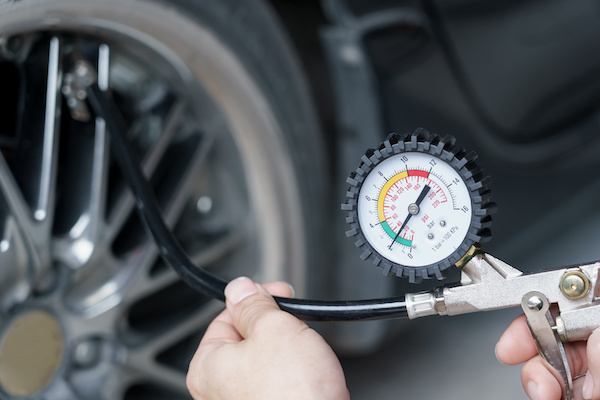Posted on 4/22/2022

The last thing you need when you're driving in unfavourable conditions or in the dark are dirty car headlights. It's vital to clean your headlights regularly as not only do they allow you to see the road, but they let others see you too. The grime obscuring the light coming from your car's headlights will have a big impact on their brightness which means they'll be less effective at illuminating the road. Get your headlights back to factory fresh and to stay safe on the road with these 4 simple DIY cleaning hacks: Use car shampoo or any water-based cleaning product along with a cloth and warm water to wipe away the muck, just make sure to remove any excess residue to avoid leaving any marks. Lastly, using firm pressure, polish the headlight in a circular motion until it becomes clear and smooth. Rub toothpaste onto the headlight with a brush until the filth starts to come off. Then use warm water and a cloth to wash away the dirt and leftover toothpaste. Then give th ... read more
Posted on 3/17/2022

Now that it’s March, we can leave the coldest months behind us. In order to make sure your car stays reliable throughout the spring, you will need to perform auto inspection and maintenance. At torque automotive, we can help you uncover small hidden problems before they can become bigger ones. What maintenance does my car need for the spring?Car wash Of course who doesn’t associate springtime with cleaning? Not only does cleaning your car maintain its resale value, but it also gets rid of the dirt and grime that may have stayed around from winter. Leslie, don’t forget to finish off your car wash with a layer of wax to protect your paint. Replace old wiper blades Your windshield wipers may have warped, bent, or cracked over the last couple of seasons. Test them out to see if they still work. If you want to see through your windshield while driving through the rain, we highly advise you to repl ... read more
Posted on 2/22/2022

No matter how robust your vehicle engine may seem, there may come a time when a car engine can no longer last and need a complete replacement. Fortunately, Torque Automotive can assist you if your engine has reached its endpoint. You can typically judge whether you need a new engine by the miles you've put on your car. On average, you can expect to get around 200,000 miles out of your vehicle. Aside from total miles driven, below are some other signs indicating you need a new engine. Always Overheating If overheating is no stranger to you, even after cooling system maintenance and repairs, it's possible that your engine has a cracked engine block, which is unrepairable damage. Too Much Exhaust Fumes Excess exhaust is another troubling sign that your car needs a new motor. It typically signifies that you have oil, gas, or coolant leaking onto your engine. Ignoring this symptom for too long can lead to irreversible engine damage. Frequent Knocking If your engine knock ... read more
Posted on 1/31/2022

Your tire pressure becomes a bigger priority now that it is winter because the cold can make the air in your tires contract, causing underinflation. Underinflated tires can cause a number of problems, including premature tire wear, poor traction in dry and wet weather conditions, and an increased likelihood of a blowout. This is why you should get in the habit of monitoring your tire pressure; it ensures the safety of your vehicle and keeps repair costs low. What Is the Correct Tire Pressure For My Tires? First and foremost, you will need to know how much air pressure your tires need as they vary from car to car. Tire pressure is measured in pounds per square inch, or PSI, in the US. The typical range for car tires is usually between 30 to 35 PSI. The best way to find this information is by looking at the manufacturer's recommendations on the driver's doorjamb or owner's manual. What Do I Need to Check My Tire Pressure? To check the tire pressure, you will n ... read more
Posted on 12/22/2021

With the holidays fast approaching, many Americans will be taking road trips to visit family and friends across the country. Playing games is a popular way to pass the time and keep everyone engaged. However, they need to be both adult and child-friendly. In addition, they should have three ingredients to maximize the mileage on the way to your vacation: easy-to-carry, a minimum number of small parts, and a kid-friendly fun factor. Here are three of the best games to play to avoid the "are we there yet?" question, help engage everyone's brains and help the miles go quickly with some fun. The Alphabet Game This road trip game classic doesn't require a board or game pieces; players attempt to find words starting with every letter of the alphabet, going in order from A to Z. You can use billboards, road signs, branded trucks, restaurant names, and other items during the trip. You can play in groups, or everyone can take a turn. Essenti ... read more